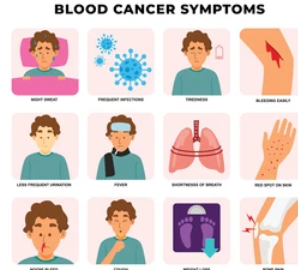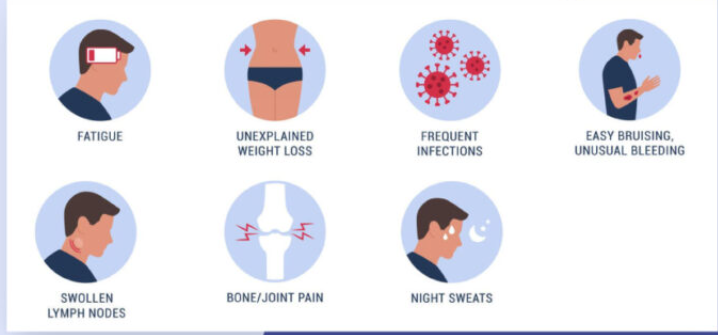How to Recognize Early Signs of Cancer
Every year, cancer affects millions of people around the globe and is among the most common causes of death. The World Health Organization (WHO) estimates that roughly 10 million people had cancer-related deaths in 2020 only. The chances of a better result increase greatly with early detection that can be achieved by recognizing the early symptoms of cancer. Early cancer diagnosis can often prove to be pivotal in depriving the disease of an opportunity to spread further and create an irreversible damage. This review explains the definition of the early signs of cancer, what properties do they have, why are they important, and how do they impact your own health and what can be done for prevention of the disease.

Features of How to Recognize Early Signs of Cancer
The identification of early ouch as-stage cancer symptoms is sometimes not easy because of the mild;
1. Simple Symptoms
Some symptoms simply do not go away even after the natural operating time. One common example to bring about here is the cough which persists for over three weeks or even an instance of unexplained pain would be quite significant pointers for concern.
2. Changes in Normal Function.
Normal changes in body limits such as change in bowel movements or inexplicable weight loss should be assessed as they can indicate a concealed illness such as cancer.
3. Unintentional weight loss.
Unexplained weight loss can be attributed to many forms of cancers ex. This may be caused due to the body fighting off a serious illness or infection.
4. Changed in the Body.
Changes in one’s body such as the appearance of new lumps or moles that have changed color and shape, or bleeding such as blood in the stool should immediately be investigated.
5. Fatigue and weakness.
Ineffective rest or extreme fatigue could be signs for potential possibilities of having cancer especially if it is supported by other symptoms as well.
6. Symptoms that are limited.
Localized symptoms such as having a hard time swallowing or a prolonged feeling of fullness could suggest possibility of more localized (esophageal or stomach) cancers.
Type of how to Prevent Early Symptoms of cancer.
The type of how to prevent early symptoms of cancer is mainly through understanding or education, publicity campaigns have been found to be useful especially in disseminating vital information that there is some mode of education. There are some important details that shall be outlined below:
1. Education and awareness.
It is crucial to know the most frequent signs and symptoms associated with various cancers – epidemiological cancer research UK. Educational and health resource initiatives are in the forefront of creating more awareness to the general populace.
2. Regular Self-Examinations
Usually, women particularly have been warned to conduct self-examinations as one way to know how their breasts feel normally and consequently whenever there is a cancer developing changes, they are able to notice it without much struggle. The same argument can also be made for skin cancer.
3. Consultation with Healthcare Professionals
It has also been noted that regular consultations of practitioners can increase the chances of early detection. These specialists are also able to help most women understand what symptoms they must be careful about, depending on the woman and family medical history.
4. Utilizing Technology
Remote healthcare and the use of mobile apps for health can enable a better management and reporting of the symptoms to the healthcare providers as well.
Uses of How to Recognize Early Signs of Cancer
It is quite common for people to only search about the early signs of cancer reserving its recognition solely for a few purposes, however, its significance stretches across the board. For these reasons, the authors feel that it should be integrated within all aspects of healthcare:
1. Timely Diagnosis
It was noted that diagnosing cancer early increases the accuracy and reduces the time required to initiate treatment which dramatically improves the outcomes.
2. Informed Decision Making
Individuals are notified in advance of early signs which may also empower patients to make decisions about their health or treatment choices.
3. Personalized Health Monitoring
People can control how they look after themselves and what changes tell practitioners that some investigation may be required.
4. Improving Strategy for Public Health
This awareness, accompanied by targeted public health campaigns, could help reduce cancer mortality through education and prevention efforts.
Main Theme of How to Recognize Early Signs of Cancer
The main theme of recognizing early signs of cancer precisely portrays the word awareness into action. It goes beyond that of understanding one’s body, being alert to any deviations, and getting on the offensive where it comes to health. There are those core ideas including:
Learning about risk factors: Knowing what signs to look for can lead to earlier interventions.
Do not let others take over your health: People need to take personal responsibility for their health by performing regular self-examinations and following up with medical practitioners if considered necessary.
There is an active population: It stresses the importance of community health programs focusing on enhancing the cancer awareness and targeting early diagnosis methods.
Advantages and Disadvantages of How to Recognize Early Signs of Cancer
Advantages Disadvantages
Early Detection: The likelihood of treatment being successful is increased. Anxiety: Stress and worry concerning health issues are likely to increase.
Empowerment: Individuals gain greater control over their health’s management. Misinterpretation: Benign conditions such as irritations can be interpreted in a malignant ways, leading to excessive investigations.
Improved Outcomes: In the majority of cases, survival is achieved with an early diagnosis. Overdiagnosis: Treatment of non-lethal forms of invasive cancer may be carried out.
Education: Increases the information of cancer injury mechanisms and control measures. Accessibility: There are disparities in the provision of healthcare facilities.
Conclusion: What are the Early Signs of Cancer?
Detecting early signs of cancer is critical to enhancing health and saving lives. With knowledge of specific symptoms, the ability to self-examine regularly, and the courage to consult a doctor, a person can greatly increase their odds of having the condition diagnosed at an early stage. This is where education and participation of the community and institutions comes to play; in this stage the message is how important it is to see warning signs. In the end, it appears timing for early diagnosis and treatment will lead to optimal outcomes in terms of greater quantity and quality of survival.
FAQs: What are the Early Signs of Cancer?
1. What early signs allow diagnosing the disease?- Witness the explained
Bookmarked
Weight loss for no apparent reason, pains, changes in bowel habits and bladder activity, bleeding, and lumps or changes in the skin are some of the early signs of cancer.
2. How frequently self exam procedures can be done?
Students should undertake self-examinations often, such as once a month for breast self-exams, and also once a month to look for changes in the skin. Your doctor can advise you on a specific frequency based on your own needs.
3. Are cancer risk factors preventable by diet and other health principles?
The answer is affirmative; some risks such as adopting a healthy lifestyle by consuming balanced meals and daily exercises, not smoking and limiting alcohol intake can drastically cut cancer risks.
4. What symptoms would warrant a visit to the physician and when is this appropriate!
Go to the physician if you begin to have unusual or persistent symptoms especially, if the symptoms have occurred for more than two weeks or are getting increasingly worse with time.
5. Can we rely on self-examinations only for the detection of cancer?
Yes, self-examinations are effective in promoting awareness but they should never be used in place of regular medical examinations and more active assessments recommended by healthcare providers.
